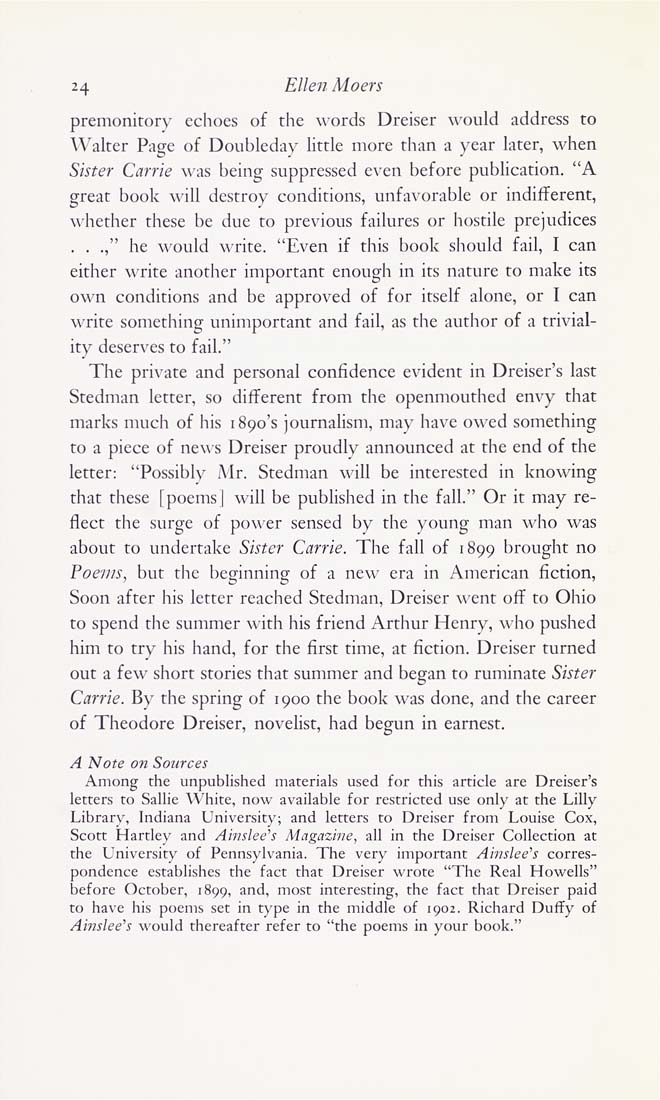Columbia Library columns (v.15(1965Nov-1966May))
(New York : Friends of the Columbia Libraries. )
|
||
|
|
|
|
| v.15,no.3(1966:May): Page 24 |

24 Ellen Moers premonitory echoes of the words Dreiser would address to AValter Page of Doubleday little more than a year later, when Sister Carrie was being suppressed even before publication. "A great book will destroy conditions, unfavorable or indifferent, whether these be due to previous failures or hostile prejudices . . .," he would write. "Even if this book should fail, I can either write another important enough in its nature to make its own conditions and be approved of for itself alone, or I can write something unimportant and fail, as the author of a trivial¬ ity deserves to fail." The pri\'ate and personal confidence evident in Dreiser's last Stedman letter, so differenr from the openmouthed envy that marks much of his 1890's journalism, may ha\'e owed something to a piece of news Dreiser proudly announced at the end of the letter: "Possibly Mr. Stedman will be interested in knowing that these [poems | will be published in the fall." Or it may re¬ flect the surge of power sensed by the young man who was about to undertake Sister Carrie. The fall of 1899 brought no Poems, but the beginning of a new era in American fiction. Soon after his letter reached Stedman, Dreiser went off to Ohio to spend the summer with his friend Arthur Henry, who pushed him to try his hand, for the first time, at fiction. Dreiser turned out a few short stories that summer and began to ruminate Sister Carrie. By the spring of 1900 the book was done, and the career of Theodore Dreiser, novelist, had begun in earnest. A Note on Sources Among the unpublished materials used for this article are Dreiser's letters to Sallie White, now available for restricted use only at the Lilly Library, Indiana University; and letters to Dreiser from Louise Cox, Scott Hartley and Ainslee's Magazi?je, all in the Dreiser Collection at the University of Pennsylvania. The very important Ainslee's corres¬ pondence establishes the fact that Dreiser wrote "The Real Howells" before October, 1899, and, most interesting, the fact that Dreiser paid to have his poems set in type in the middle of 1902. Richard Duffy of Ainslee's would thereafter refer to "the poems in your book." |
| v.15,no.3(1966:May): Page 24 |







